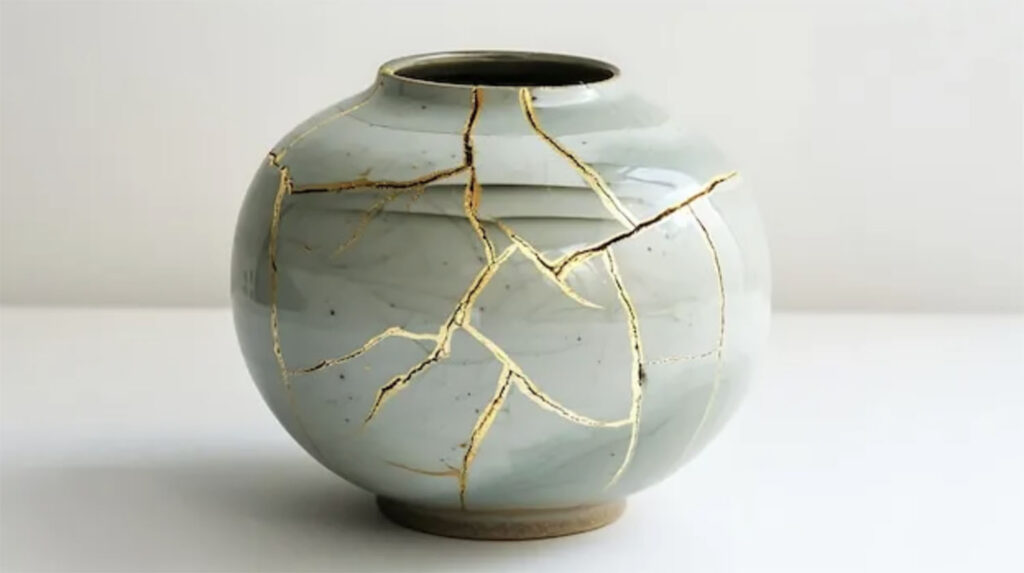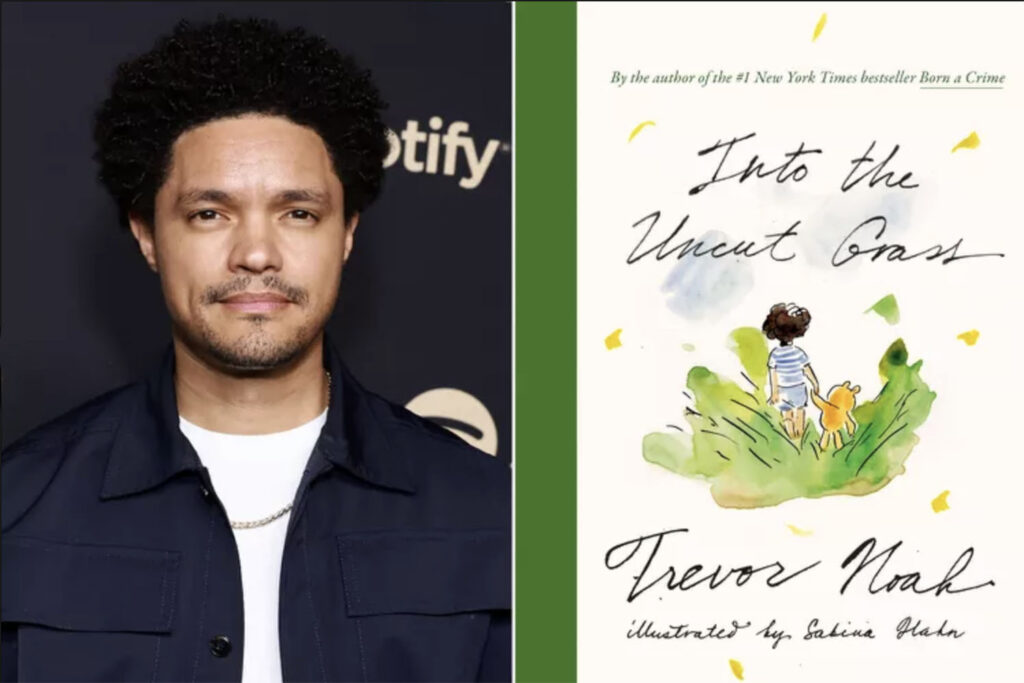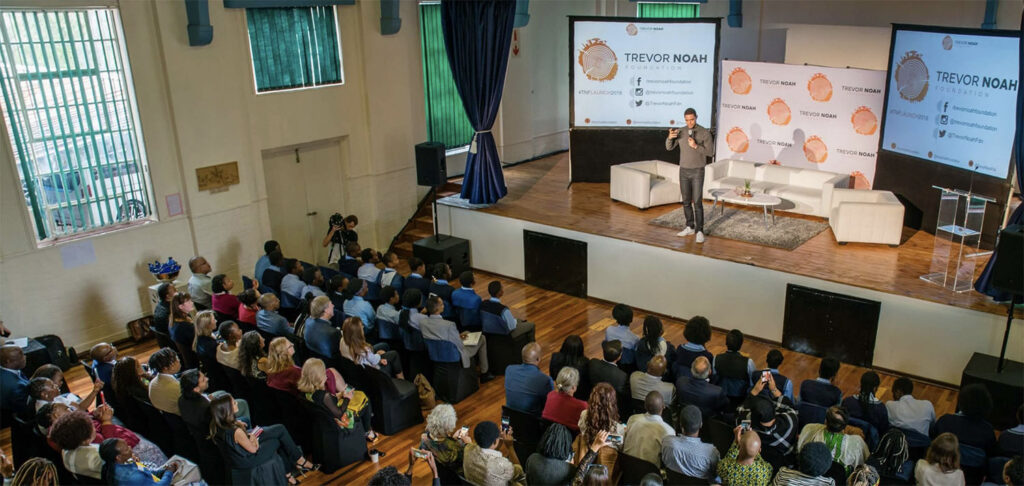By Alliance President Terry Gips
Most of us know Trevor Noah as a brilliant comedian, acerbic societal provocateur and talented Daily Show host from South Africa. However, there is an even more inspiring and inside-out side of Noah that was revealed at the April 4 Skoll World Forum in Oxford, UK.
In a mind-expanding interview, my brother and Skoll Foundation CEO Don Gips revealed a completely different aspect of Noah – the wise yet humble modern day Renaissance man, innovative and strategic social entrepreneur, and impactful leader for social justice who is putting his money, time and personal commitment into transforming our world.
The wide-ranging interview covered everything from imagination and kintsugi to the fight for democracy in South Africa, the impressive work of the Trevor Noah Foundation and an unforgettable invitation for people to switch economic places to transform our world. I hope his invaluable wit and insights give you renewed hope during these hard times and invite you to think anew about addressing the challenges we face.
The Need for Imagination in Solving Our World’s Greatest Challenges
The interview began by Gips reading an introductory passage from Noah’s new children’s book, Into the Uncut Grass:
Imagining, I’ve come to understand, is crucial for conflict resolution. When faced with seemingly insurmountable challenges, it’s our ability to envision possibilities beyond the immediate and obvious that paves the way for solutions. Imagination allows us to step outside of entrenched positions and explore new perspectives to conceive of compromises that were previously invisible.”
Asked why imagination is so important for him, Noah responded, “Because most of the worlds I’ve inhabited didn’t exist at some point. Because someone imagined them, they became possible.”
He added, “South Africa’s history was one that for many people couldn’t be possible and was imagined by many. There are many people who imagined and believed that democracy would be possible, that the racial divides that were codified would slowly be broken down.”
“The reason imagination is so powerful is because it defies the expectations of reality. That’s sometimes what people get wrong. They want imagination to be tied to reality. But that’s why you need to imagine it. That’s precisely what imagination is.”
“In any situation, I find it’s trying to think of creating a project that’s never been created or thinking of doing something that seems completely impossible…The space the world is in now because of geopolitical events for many people seems impossible.”
“But I think in those moments that’s when imagination becomes more necessary, becomes more powerful. It’s in those moments where you need to imagine a collective that goes beyond what we’ve gotten used to, that can achieve things we don’t think or never thought are possible.”
Noah on Kintsugi, the Japanese Art of Reparation

Gips asked Noah about the theme of the Forum, Kintsugi, the Japanese art of repairing broken pottery by mending the areas of breakage, and noted Noah’s previous interest in the subject. Noah began by discussing his long-time fascination with Japanese culture, saying “The Japanese have always done a wonderful job of just reframing what you’re already doing.”
“The act of putting something back together and repurposing it, having a name and having it be something more beautiful than the original, is such a wonderful way to inspire you to want to fix and not to look at it as a broken thing but to think of it as a new piece of art. It teaches you to recontextualize things.”
Bringing Societal Change: The Challenge of “the Last Mile”
Noah addressed the challenge of change with an intriguing analogy. He spoke about the concept of “the Last Mile”, a term that comes from telecom and refers to laying cable with the hardest and most expensive part being getting it into people’s homes.
“That’s often times where we are with society. These ideas exist…but getting them that last mile, into people’s houses, is one of the hardest things to do because you have to be cognizant about the translation you have to do to get them to understand what you’re trying to say. So I think it’s very doable but we have to have a certain humility to understand that maybe the language we’re speaking isn’t correct.” Hint: Did you hear that Democrats?
Noah on Philanthropy
“Knowing where and how is quite hard…and you want to do the things that are impactful. Oftentimes I’ve found that is both the drive and the arrogance that can sometimes come from philanthropy.” He added, “The most humbling learning I’ve had in this experience is that it’s not our job to decide the impact but to be really good to the people we wish to have an impact on.”
“You need the people around you, the connectors…We’ve had many learnings…We’re starting an Innovators Fund… There are so many programs being run by organizations on the ground that have intimate learnings…a deep understanding of the communities they’re in but don’t have the same connections to finance or to equity or to anything they need to move those programs along…Help us help you. Let us grow that with you.”
“Our dream and goal is to be an amplifier.” One of those areas is “Educating educators.”
Using Comedy to Bridge Divisions
Gips mentioned how Noah has used comedy to cross divides and asked, “How do you use it?” Noah replied, “We all use the tools at our disposal to do the things we wish to do.”
“I’ve been blessed to get into a profession when I was young…It’s not just the comedy but it’s what comedy is trying to do, finding the connective tissue,” Noah added. “Comedy was just the tool but I’ve always enjoyed culture and then as honestly as possible trying to explore…It’s been a blessing for me.”
If Noah Ruled the World
Gips mentioned Noah’s popular podcast, What Now?, and the game Noah plays on it, “If I Ruled the World” and asked, “If you ruled the world, what’s the one thing you’d change?”
Noah responded: “It’s more of a thought experiment. We throw out ideas that might change the way the world is.” He then gave his answer:
“If I ruled the world, randomly every 17 months everyone’s bank accounts would switch with another person’s bank account. We’d see what happens.” He then laughed and said, “Whenever I say this I can look at you right now and tell what your bank account is by how you reacted.”
“We’re being a little dishonest if we don’t acknowledge there’s no species that is going to want to get as much as it needs to survive. This is across every species. The thing that’s difficult about where we are as humans is there’s no fixed number or idea. Everyone is in this rat race to get a number they don’t even know.
“How would we be if we all thought the thing we had could be somebody else’s and if we thought the position someone else was in could be the position we found ourselves in? It’s something we often take for granted.”
“We often forget that most of us are where we are because of dumb luck. I’m always intrigued by how people wear their luck as an achievement.”
“Think about how that luck determines the trajectory of your life. What does it do to you…This is all luck and yet so many people wear it as an achievement.”
“I’m not saying that to shame anyone…Sometimes the perspective we have around having or not having is that we’ve been taught it’s because of someone’s inability to or to want to do or to be able to dream of doing. We tie those two things together. We go, ‘you are where you are because you don’t have the ability to think beyond that because if you could you’d be in my position.’
“I’d argue the truth is the exact opposite. When I think of our grandmothers in Africa and what they were able to do with the beyond nothing they had. That to me is a business genius.”
“That’s why I play the game, If I Ruled the World…Ask yourself this question: If you knew for a fact every 17 months bank accounts would switch, how would you treat having it versus not having it? How would you treat those who don’t have? How would you think of yourself for having? And would it change the dynamic we share among ourselves as human beings?”
Thank you Trevor Noah for your gifts to all of humanity. Check out the full 27-minute interview on Skoll’s YouTube channel.
I’m sad to end this series of inspirations from the Skoll World Forum but hopefully the stories of the amazing social innovators will inspire you to help co-create the world of our dreams.


